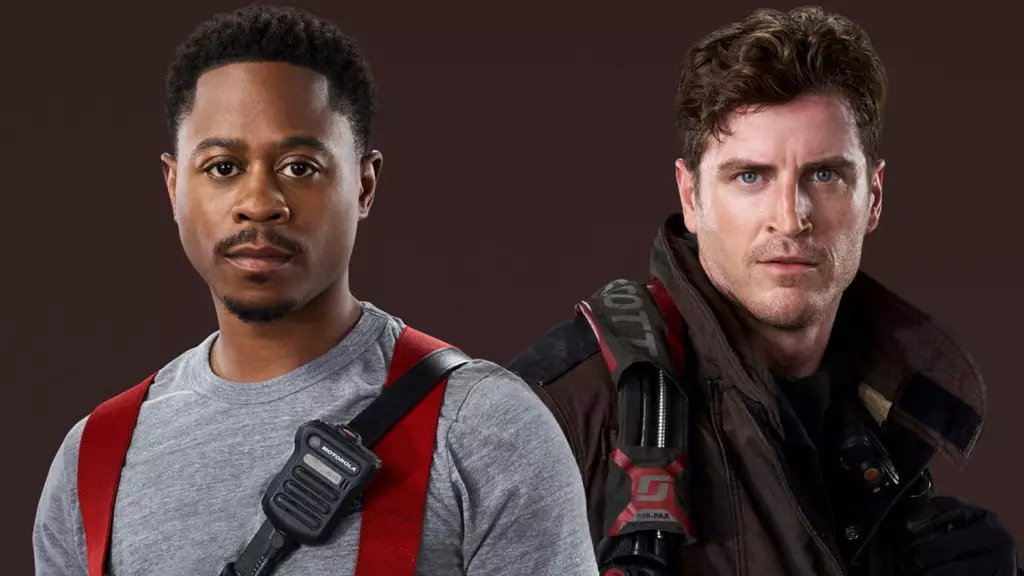As NBC’s long-running series Chicago Fire gears up for what could be its 14th season, the unexpected news of Daniel Kyri and Jake Lockett’s departure has sent shockwaves through the fan community. With both actors playing significant roles over the years—Kyri for seven seasons as Firefighter Darren Ritter and Lockett for three seasons as Firefighter Sam Carver—the decision speaks volumes about not just the show’s internal dynamics but also the broader trends impacting television programming in today’s competitive environment.
The entertainment landscape today is dominated by volatility. Networks are under constant pressure to balance captivating storytelling with stringent budgetary constraints, and that pressure appears to be affecting shows under Wolf Entertainment’s purview, including the beloved Chicago franchise. In this evolving scenario, budgeting considerations have taken precedence, prompting a reevaluation of which characters continue to resonate financially—and passionately—with audiences.
Turning Point for Character Development
Darren Ritter’s character arc has been compelling, showcasing his growth from firefighter candidate to a well-liked mainstay in the firehouse. His storylines centered around his developing romantic relationship with Officer Dwayne Monroe added layers to his character, highlighting the human element of life as a firefighter. However, with the end of their relationship indicating a turning point, one has to wonder if the writers had reached a narrative dead end. Kyri’s departure might be seen as a loss of potential future development for a character that had worked hard to overcome personal challenges.
On the other hand, Jake Lockett’s Sam Carver has been depicted through a lens fraught with struggles, from relationships to personal demons. His arc is representative of those turbulent moments often faced during recovery, creating a depth that resonates with viewers. The deterioration of Sam’s relationship with Violet and his subsequent relapse highlighted the fragility of sobriety and the ongoing battle for redemption. However, this narrative may have hit a plateau, with Carver facing diminishing returns in audience engagement. As compelling as the storyline has been, it might be possible that producers felt there was a need for freshness in the air—a shift that fresh departures might herald.
Executives are Feeling the Heat
Behind the scenes, the executives at NBC and Universal Television are likely feeling financial pressures to streamline their operations. Executives are not just looking at the show’s current performance but are also eyeing its economic viability as they negotiate contracts with a number of established cast members whose fates now hang in the balance. The impending negotiations will definitely impact the trajectory of characters and the series itself.
Industry insiders suggest this move aligns with a broader trend of gauging how beloved a character is versus the costs associated with retaining them. In both the Chicago and Law & Order franchises, there have been attempts to trim costs from their portfolios, but with each cut often comes the risk of alienating long-time viewers. While it is imperative for networks to maintain a profitable operation, it’s equally crucial for them to recognize the emotional attachments viewers form with characters over the years.
Fans Face the Reality of Change
For fans, watching their favorite characters exit the stage is an emotional rollercoaster. Loyal viewers have invested years in following Darren and Sam’s journeys, celebrating their triumphs and empathizing with their struggles. Their departure could very well diminish the charm that has attracted many to watch Chicago Fire over the years. Yet, it’s a reality that audiences must grapple with as the show seeks to evolve while staying competitively viable in a crowded television market.
It’s a bitter pill to swallow, especially considering Chicago Fire’s proven record as one of NBC’s top scripted series. However, such significant changes also pave the way for new storytelling directions, fresh character dynamics, and—hopefully—more engaging narratives that could reinvigorate fan interest. Ultimately, as the cast reshuffles, one can only hope that the creative team will tread carefully, keeping the essence of the show intact, while also adapting to the ever-changing tides of the television landscape.
